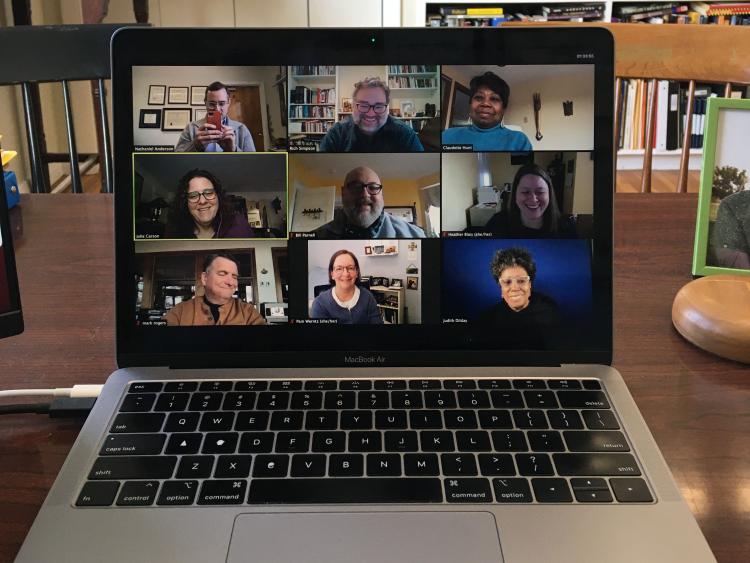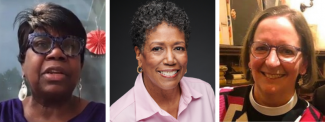What can be done better together than apart?
For the two Episcopal dioceses in Massachusetts, a steady increase in collaborations in recent years suggests that the answer could potentially be: Quite a lot.
Both possess a long, rich history of serving God’s people, and have been doing so mostly in parallel over the decades following the founding of the Diocese of Western Massachusetts in 1903 out of what started in 1784 as a single diocese in the Commonwealth.
Lately, however, Episcopalians from both dioceses have been coming together in a variety of meaningful ways: Public actions and advocacy to end gun violence and to act for the care of God’s creation at a time of climate emergency, for instance. Joint retreats and professional development events for clergy, and adult Christian formation and discernment programs for the laity. Youth activities and shared ministry networks around outreach with veterans and growing “Good News Gardens.” And more.
Bishops Alan M. Gates and Gayle E. Harris of the Diocese of Massachusetts and Bishop Douglas J. Fisher of the Diocese of Western Massachusetts began to wonder about the extent of this spirit of collaboration and to discuss the possibility of further exploring current shared engagement, at all levels. What would it be like to get to know one another at a deeper level? How might two vital dioceses partner across difference for the sake of the Gospel? How might experiences of shared engagement be a call to discern the Holy Spirit’s leading? What can we do better together?
With these questions in mind, the bishops, last November, convened the Task Force for Exploring Common Mission, and the group has been meeting regularly in the months since. Their charge from the bishops is to be in dialogue and prayer for a year about what collaborations, and potentially what more formal institutional structures, might warrant more exploration. There are no foregone conclusions, and the task force will share findings with both dioceses for further discernment.
The task force invites everyone’s prayers for their continuing “holy conversations” and for their commitment to walking forward together, Spirit-led.
Four people from each diocese, lay and ordained, comprise the Task Force for Exploring Common Mission.
Serving from the Diocese of Western Massachusetts are the Rev. Nathaniel Anderson, St. John’s Church, Williamstown, Co-Chair; the Rev. Heather Blais, St. James and St. Andrew’s, Greenfield; Trudy Weaver Miller, Christ Church, Sheffield; and Mark Rogers, Church of the Reconciliation, Webster; with the Rev. Dr. Richard Simpson, Canon to the Ordinary, staff liaison.
Serving from the Diocese of Massachusetts are Claudette Hunt, St. Andrew’s Church, Ayer, Co-Chair; the Rev. Julie Carson, St. Andrew’s Church, Framingham; the Hon. Judith Dilday, St. Cyprian’s Church, Roxbury; and the Rev. Pam Werntz, Emmanuel Church, Boston; with the Rev. Canon William Clay Parnell, Canon to the Ordinary, staff liaison.
--The Rev. Vicki Ix and Tracy J. Sukraw


